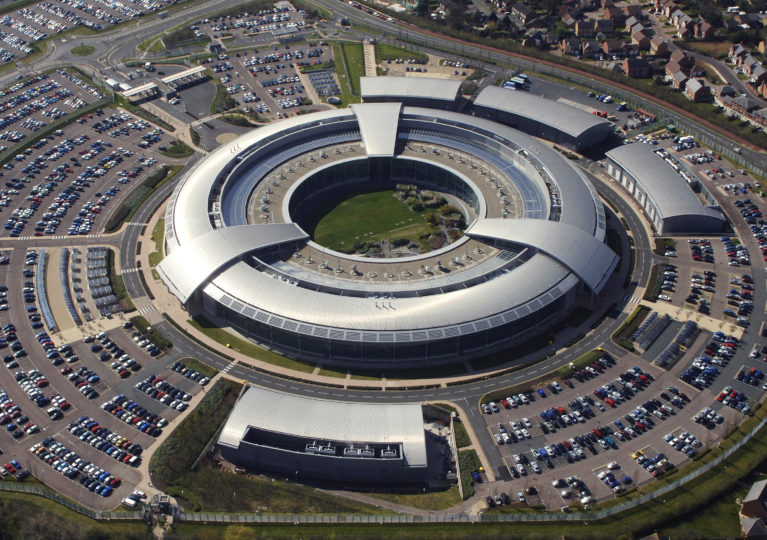Mass surveillance and Snoopers' Charter
People vs Snoopers’ Charter: High Court to hear first part of legal challenge
Posted on 26 Feb 2018
High Court to hear first part of Liberty’s landmark challenge to mass surveillance powers in the Investigatory Powers Act
The High Court will tomorrow hear the first part of Liberty’s landmark legal challenge to the Government’s flagship surveillance law, the Investigatory Powers Act.
The challenge has been funded by donations from members of the public, who gave more than £50,000.
This hearing will focus on the first part of Liberty’s case against the Act – its challenge to government powers to order private companies to store everybody’s communications data and internet history so that state agencies can access it. Liberty argues that indiscriminately retaining every person’s data in this way violates the UK public’s right to privacy.
The hearing will take place on Tuesday 27 and Wednesday 28 February at the Royal Courts of Justice.
Martha Spurrier, Director of Liberty, said: “There’s no doubt police and security agencies need tools to tackle serious crime in the digital age – that’s why Liberty spent years campaigning for new surveillance legislation to keep us safe, protect our rights and safeguard our personal data.
“Instead we got the Investigatory Powers Act, the most invasive surveillance regime of any democracy in the world. It introduced staggering state spying powers that give the Government access to everybody’s web histories, email, text and phone records. It’s made us less safe and less free – undermining our privacy, free press, free speech, protest rights, protections for journalists’ sources and whistleblowers and legal and patient confidentiality.
“Our message to the Government is straightforward – you’re not above the law. Stop ignoring the courts, stop knowingly violating people’s rights and get on with building a targeted surveillance system that protects our safety, our cybersecurity and our rights.”
About the case
The Investigatory Powers Act allows the Government to force communications companies and service providers to store records of everybody’s emails, phone calls and texts, location data and entire web browsing history, and hand these over to state agencies on demand.
The law also allows the State to hack computers, phones and tablets on an industrial scale, and collect the content of our digital communications and records about those communications created by our computers, phones and other devices.
This week’s hearing concerns the Government’s ability to collect communications data – which includes records of which websites we visit, location tracking information from our mobile phones, and lists of who we call, text or email, when and how often.
This information paints a detailed picture of a person’s movements, contacts, habits and views. It can be accessed by dozens of public bodies – from local police to financial regulators – with no independent authorisation and for reasons that have nothing to do with investigating terrorism or serious crime.
Last month, the Court of Appeal ruled that near-identical powers in the Government’s previous surveillance law – the Data Retention and Investigatory Powers Act – were unlawful because they let public bodies access the nation’s internet activity and phone records with no suspicion of serious crime and no independent sign-off. This Court of Appeal ruling applied an earlier judgment in the same case from the European Court of Justice (ECJ).
The Government has already conceded that Part 4 of the Investigatory Powers Act has the same flaws – but has argued that it should nonetheless be permitted to continue to apply it with no response at all from the Court.
Liberty will ask the court to order the Government to stop the future application of these parts of the Investigatory Powers Act because they allow storage of and access to this data:
- With no independent authorisation
- For crime-fighting purposes extending far beyond “serious crime”
- For a wide range of other non-crime purposes, including collecting taxes and fines owed and regulating financial services.
- The Home Office recently launched a public consultation into potential changes to the Act to address what it now admits are illegal provisions – but the Government has not promised to make any actual changes. Liberty will demand a court order requiring the Government not to apply the Act unless these changes are made.
Liberty will also ask the High Court to immediately refer questions of EU law to the European Court of Justice – including the question of whether the standard for retaining communications data under the Investigatory Powers Act is a general and indiscriminate privacy violation.
About the Investigatory Powers Act
The Investigatory Powers Act was intended to introduce transparency to state surveillance following Edward Snowden’s revelations of unlawful mass monitoring of the public’s communications. Instead it simply legalised the practices he exposed – and introduced hugely intrusive new powers.
It passed in 2016 in an atmosphere of shambolic political opposition and as Parliament reeled from the EU referendum – despite the Government failing to provide any evidence that the extreme indiscriminate powers it introduced were lawful or necessary to prevent or detect crime. A public petition calling for its repeal attracted more than 200,000 signatures, but was not debated by Parliament.
Liberty has instructed Shamik Dutta at Bhatt Murphy Solicitors, Martin Chamberlain QC, Ben Jaffey QC and David Heaton in this case.
Contact the Liberty press office: 0207 378 3656 / 07973 831 128 / pressoffice@liberty-human-rights.org.uk
I'm looking for advice on this
Did you know Liberty offers free human rights legal advice?
What are my rights on this?
Find out more about your rights and how the Human Rights Act protects them
Did you find this content useful?
Help us make our content even better by letting us know whether you found this page useful or not


